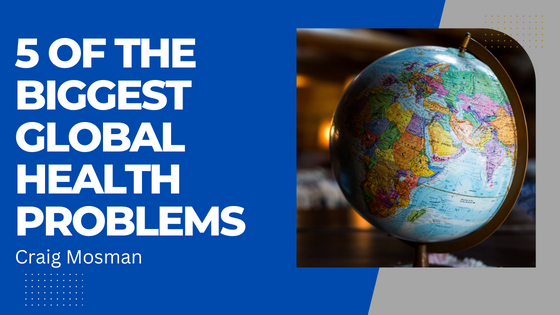The effects of globalization on various healthcare issues have been acknowledged. You might be surprised to know things like changes in agricultural practices and transportation affects global health. Here are some of the global health issues. Understanding this concept is the first step in addressing these issues.
Global Health
Although different definitions of global health exist, it is generally regarded as a concept that focuses on understanding the various aspects of health care. This includes the study of medicine and improving healthcare equity for all people.
While the World Health Organization has a prominent role in global health, private and public organizations also make a significant difference. According to Dr. Calum Macpherson, the director of research at St. George’s University’s School of Medicine, the One Health One Medicine initiative aims to address the convergence of animal, human, and ecosystem health.
The various practices that are connected to global health are inextricably linked. Collaborating with multiple organizations and individuals can improve the quality of life for both animals and humans. Some of the challenges that global health faces are summarized below. These issues help illustrate the scope and complexity of this complex field.
- Pandemics
A recent article in the WHO Bulletin defined a pandemic as an outbreak of disease that has the potential to affect a large population. Common examples of pandemics include the 1918 flu and the COVID-19 virus.
Although vaccination can help prevent a pandemic, addressing the various factors triggering a disease outbreak is essential. For instance, there must be an increased focus on the rapid detection of disease with immediate remote reporting. Global health leaders have warned about the need for years. Health education is another key factor that can help prevent a pandemic.
- The Environment
Climate change and air pollution are known to harm the health of humans. Most of the time, the issue is linked to sanitation and water sources.
Besides these factors, other factors, such as flooding and air pollution, can also contribute to the spread of diseases. Although providing resources such as sanitation and bottled water can benefit global health, we should also focus on preventing environmental threats.
Dr. Macpherson states climate change is considered the greatest threat to human health.
He noted that various countries had enacted legislation aimed at regulating the energy consumption of households. These policies also encourage the development of environmentally friendly practices in the manufacturing industry.
The implementation of these policies could potentially have a positive effect on the health of individuals living in urban areas. This is because these regions account for over half of the world’s population. In a recent blog, Dr. Susann Roth persuasively argued that behavioral science could help fight climate change.
- Access To Healthcare and Economic Challenges
Despite the various advancements that have been made in the field of medicine, many communities around the world still lack access to adequate health care and education. This issue contributes to various health disparities, such as infant mortality rates. Income inequality is also a contributing factor to these disparities.
To address these issues, global health professionals must explore various ways to improve access to healthcare, such as holding public health forums and encouraging physicians to practice in rural areas.
Continued development of point-of-care testing that is rapid, simple, and affordable is critical to the effort to address inequality in healthcare.
- Politics
International politics also exacerbate the lack of access to healthcare. As tensions rise due to disputes within and between nations, the average citizen becomes more vulnerable to diseases. An estimated 68 million people have fled their homes because of conflict, civil unrest, or disaster. Providing healthcare to migrant populations is a significant challenge.
Although migration can allow for the quick spread of diseases, global health organizations, such as the WHO, believe it’s essential to address the issue of migrant and refugee health issues. They noted that solutions should include establishing effective policies and programs to improve healthcare access.
- Noncommunicable Diseases
The WHO noted that non-communicable diseases such as cancer and heart disease are responsible for over 70 percent of global deaths.
One of the most effective ways to prevent non-communicable diseases is by improving the education level of individuals. This can help them understand their lifestyle factors, such as alcohol consumption, poor diets, and tobacco use, contribute to early mortality.

